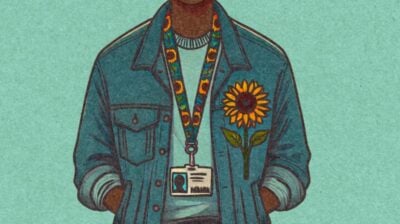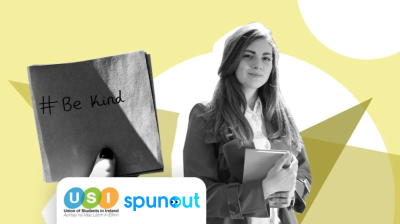ACCESS: Going to college on the HEAR and DARE schemes
Are you eligible to go through the ACCESS route to third level?

The ACCESS route to college is an admissions scheme to help students who may not traditionally go on to third level education. This could be due to your scocio-economic background, the history of education in your family, or because of a disability.
There are two schemes available for students through ACCESS, the Higher Education Access Route (HEAR) and the Disability Access Route to Education (DARE).
It is possible to apply for both schemes if both are relevant to you.
Higher Education Access Route (HEAR)
The Higher Education Access Route (HEAR) and participating colleges reserve a number of places each year for students that come from socio-economically disadvantaged backgrounds and show an ability, motivation and potential to succeed at third level.
It works on a reduced points basis, so there are a number of places held on courses for people who have lower leaving cert points who have gone through the ACCESS route.
Who can apply for HEAR?
To apply for HEAR, you must be a school leaver under the age of 23.
You must also have completed the Leaving Cert (you can apply while in sixth year, at the same time as filling out the CAO), as you will be using your points to apply for courses.
Eligibility indicators
There are a number of ‘eligibility indicators’ that a person can meet in order to be eligible for HEAR.
You must meet the ‘Low Income’ indicator plus a combination of two other indicators. Find out more about these combinations on the HEAR website.
The indicators are as follows:
- Low Income: Your family income falls on or below the HEAR Income Limit
- Medical Card: Your family has a Medical Card or GP Visit Card
- Social Welfare Payment: Your family received a means-tested payment from the Department of Social Protection for at least 26 weeks in the year previous
- Socio-economic Group: You belong to a group that is under-represented in higher education based on the occupation and employment status of your parent(s) or guardian(s)
- School: You completed five years in a secondary school that takes part in the Delivering Equality of Opportunity in Schools (DEIS) scheme
- Area: You live in an area in which there is concentrated disadvantage and social exclusion – in other words, an area where, for example, there is high unemployment and poverty and very few facilities for the community
Benefits of taking part in HEAR:
- Orientation day
- Extra tuition if required
- Mentoring/social gatherings
- Extra financial assistance when available
How to apply:
You can apply to go down the HEAR route by filling out your CAO form and indicating on the form that you would like to apply for the HEAR scheme. This form will be part of your CAO application. For more information visit accesscollege.ie/hear.
Disability Access Route to Education (DARE)
If you’re looking to go to college, are under 23 years of age and have a disability or diagnosed learning difficulty, you should consider applying for the Disability Access Route to Education (DARE) entry scheme.
Designed to compensate for difficulties posed by studying with a disability, DARE offers successful applicants the opportunity to avail of desired college or university courses that they may not have gotten the points for through the standard application process.
Who can apply for DARE?
In order to be considered for DARE entry, you must have completed the Leaving Certificate (you can apply while in sixth year, at the same time as filling out the CAO), be aged under 23, and have a disability of some kind (physical or mental).
You will need to provide evidence of your disability with your DARE application. You can find out what you will need to submit as evidence on the DARE website.
How to apply for DARE
You can apply for DARE at the same time as you are applying for the CAO. Make sure you indicate on your application that you would like to be considered for DARE.
When filling out the CAO, you will need to disclose your disability or learning difficulty and fill out a form called the Supplementary Information Form.
The Supplementary Information Form is made up of three sections:
- Section A: This is a personal statement on how you believe your disability/learning difficulty impacts on your education
- Section B: This involves getting a Second Level Academic Reference completed by your school, which helps to give an educational background to your application from staff who you’ve been involved with in secondary school.
- Section C: The Evidence of Disability Form (if you have a learning difficulty, please see section below), which must be completed by a relevant and accepted medical consultant or specialist. This verifies the nature and extent of your disability, and provides an indication of what supports you may need in third level.
Learning difficulties
If you’ve got a specified learning difficulty such as dyslexia, dyspraxia or dyscalculia, you’re required to provide a full psycho-educational assessment completed by an appropriately qualified psychologist instead of the Evidence of Disability Form. The assessment must have taken place within the last three years.
Are there other supports available for people with disabilities?
If you are not eligible for DARE, or you need additional supports, there is still support available to help you navigate college. The organisation AHEAD provides information to students and graduates with disabilities on issues and challenges facing people with disabilities in education.
Many colleges also provide additional supports. Some other options available to you include:
- Orientation Programmes
- Learning Support
- Assistive Technology
- Library Support
- Exam Accommodations
- Educational Support Worker
- Academic Tuition
To learn more about DARE visit accesscollege.ie/dare
Need more information, advice or guidance?
We offer information, advice and guidance about the issues that matter to you. Our online Youth Information Chat service is for 16 to 25 year olds and is available Monday to Friday, 4pm to 8pm (excluding Bank Holidays).






